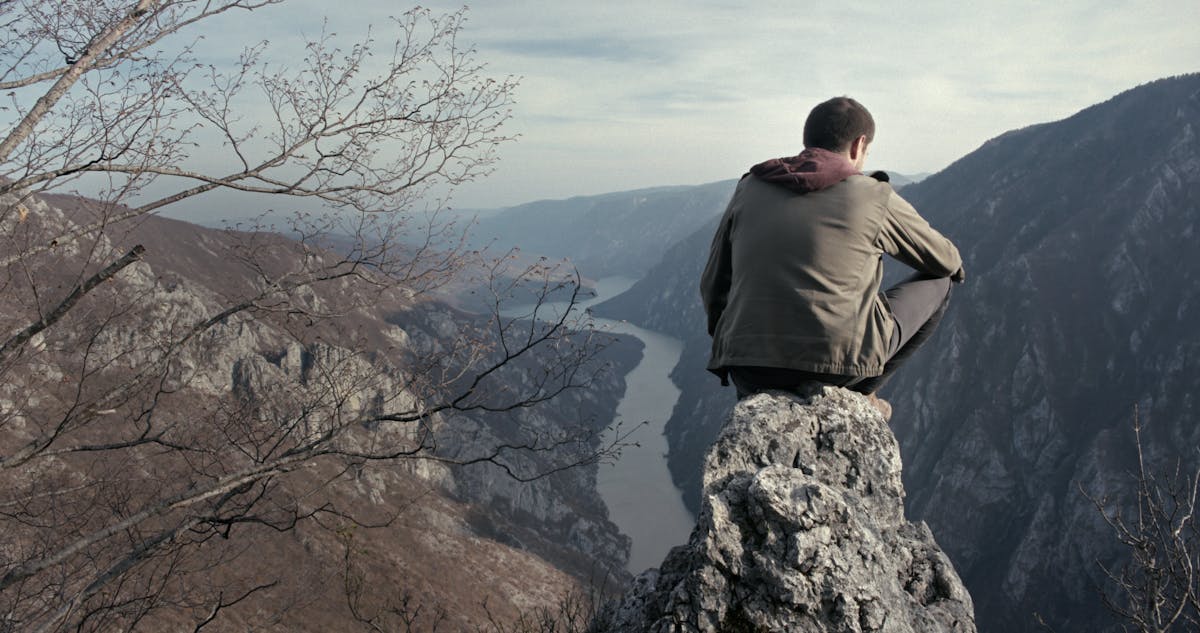The Boy from the River Drina
Il ragazzo della Drina
VERDICT: Past traumas are at the center of Zijad Ibrahimovic’s documentary 'The Boy from the River Drina’, screened in Locarno’s Panorama Suisse section.
“Home is always somewhere I am not”, reads an opening title in The Boy from the River Drina, a Swiss-produced documentary about a Bosnian emigrant reconnecting with his roots.
After bowing at the Solothurn Film Festival in January 2025, it will continue its tour (Pesaro, Locarno, Sarajevo) to increase its global profile while also gearing up for a domestic release via the Let’s Doc initiative this fall. It should hit the spot at events with a focus on war-related displacement, as well as in its two main areas of interest (Bosnia and the Italian-speaking region of Switzerland).
Ticino is where director Zijad Ibrahimovic fled with his family when he was 14, as a result of the war in Bosnia. A similar fate befell his compatriot Irvin, and years later the two have teamed up for a journey through the areas they left behind. Said journey was backed by the Lugano-based production company Rough Cat in association with RSI, the Italian-language branch of the Swiss public broadcaster SRG SSR, showcasing the versatility of national productions with an eye towards the international, particularly when it comes to portraits of reality.
It is, of course, a harsh reality that Irvin must deal with upon arriving in Bosnia. He traverses the woods where, three decades prior, people sought refuge during the Bosnian war, in an area where bloodshed was particularly brutal: per the title, we’re in the region surrounding the river Drina, including Srebrenica where more than 8,000 people were killed in an act of genocide. Irvin seeks to understand what happened, what might still happen, and to bring new life to the region, which is why he decides to build a village with his own hands. But will that be enough to restore a sense of peace and normalcy to a war-torn area?
Perhaps most strikingly, Ibrahimovic depicts the region in the most mundane fashion possible. By eschewing the use of archive footage to show exactly how ravaged the territory was thirty years ago, the mundanity of it all becomes even more notable, unveiled to the viewer as it is to Irvin and the filmmaker, the protagonist’s gaze becoming one with our own (he’s often filmed from behind, as though we were observing the landscape with him).
Instead of the banality of evil, as once famously described by Hannah Arendt, we sometimes witness the banality of what evil left behind, such as when Irvin notes a cornfield has grown on top of a Srebrenica mass grave. In its own weird way, nature has already moved on. But humans may never achieve that, with the generational pain still playing a major role in the everyday lives of those affected by the conflict and the subsequent displacement of many to other parts of Europe. And while some scenes could have used a little more breathing room (the film clocks in at a brisk 73 minutes), the message is conveyed efficiently: Irvin may be a man now, speaking Italian with only the slightest hint of an accent, but deep inside he’s still that boy from the Drina region, struggling to understand why his world was turned upside down.
Director: Zijad Ibrahimovic
Screenwriters: Zijad Ibrahimovic, Marzio Mian, Nicola Scevola
Producers: Nicola Bernasconi, Silvana Bezzoli Rigolini, Giulia Fazioli
Cinematography: Zijad Ibrahimovic, Reto Gelshorn
Music: Alexandre J. Maurer
Sound: Matteo Taheri
Production companies: Rough Cat, RSI
World sales: Rough Cat
Venue: Locarno Film Festival (Panorama Suisse)
In Bosnian, Italian
73 minutes

